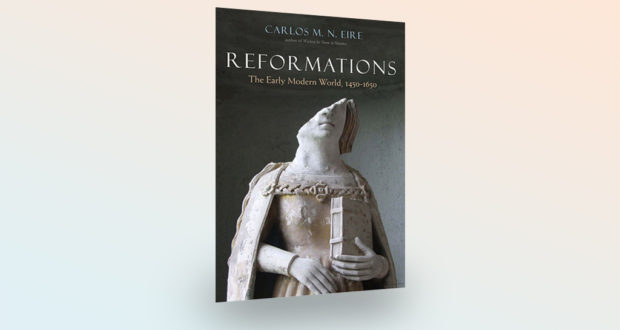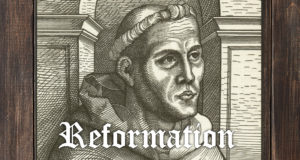It may have a staggering page-count but Carlos Eire’s latest book Reformations tackles an epic two hundred year period during the Protestant and Catholic Reformations as the West transitioned from the Middle Ages to modernity. Nick Mattiske reviews.
You don’t want to drop this massive book on your foot, but you might like to lug it back home from the bookshop, as it is a history of the period that is wide-ranging and careful.
It seems ridiculous to say this about a 700-plus page book, but its author, Carlos Eire, also has a knack for the anecdotal summary, meaning the narrative never gets bogged down.
Eire speaks of reformations plural because, as scholar Eamon Duffy says in his recent book on the English Reformation, the progress of reform was anything but linear. There were many conflicting movements happening at once, pushing and pulling.
Historians no longer point to Luther’s 95 Theses as the beginning. Luther merely lit the bonfire compiled by others. Eire’s book is so large partly because—to switch metaphors—he carefully points out all of the features of the medieval edifice as it stood before the Reformation knocked it down.
There were cracks in the structure as a result of Renaissance humanism, which promoted a more rigorous analysis of Scripture, and although the Church was often enthusiastic about this, the new scholarship did eventually call into question both doctrine and practice.
At another level, the laity was enthusiastic for spiritual revival, and coupled with distaste for the excesses of the Church’s hierarchy, this ushered in an era of belief, rather than merely belonging.
Eire deals with Luther in only a couple of chapters before moving briskly on to how Luther’s Reformation quickly ran away from him. Luther battled left and right, both the Pope and a host of radicals, from hair-splitting theologians to violent peasants who, Luther said, misinterpreted him.
Radicalism and fragmentation seem, in hindsight, to have been inevitable once Luther and his fellow Reformers were understood to be advocating for the freedom to interpret Scripture in the light of conscience.
Except that people weren’t free—Protestants persecuted heretics as much as Catholics. It was simply the case that now there was a cacophony of voices claiming theological authority and denouncing opponents as heretical. Yet from all this came a renewed, more Biblical Christianity.
On the Catholic side, there were much-needed reforms, especially in education, but also a renewal of practices Calvin and company deemed superstitious. Calvin, much more than Luther, dismantled the world famously described by Max Weber as “enchanted”, and by Peter Brown as “porous”. Ironically, Calvin here sowed the seeds of modern doubt, and, says Eire, had an influence greater than Luther, one persisting to our modern secular society.
Nick Mattiske
Nick Mattiske is a bookseller and blogs at Coburg Review of Books.
Reformations: The Early Modern World, 1450-1650
Author: Carlos Eire
Publisher: Yale University Press
2016
To purchase visit Footprint Books
 JourneyOnline
JourneyOnline




